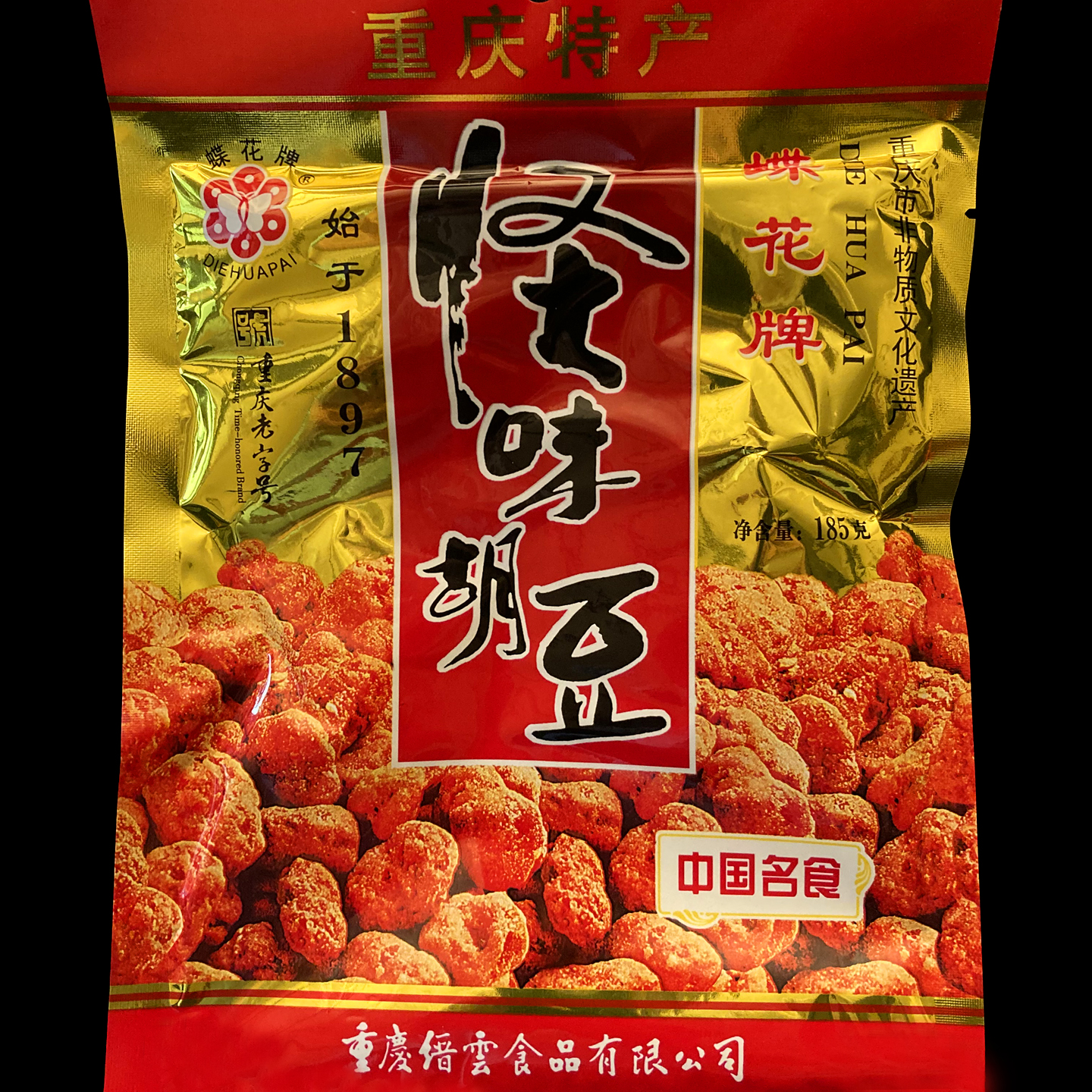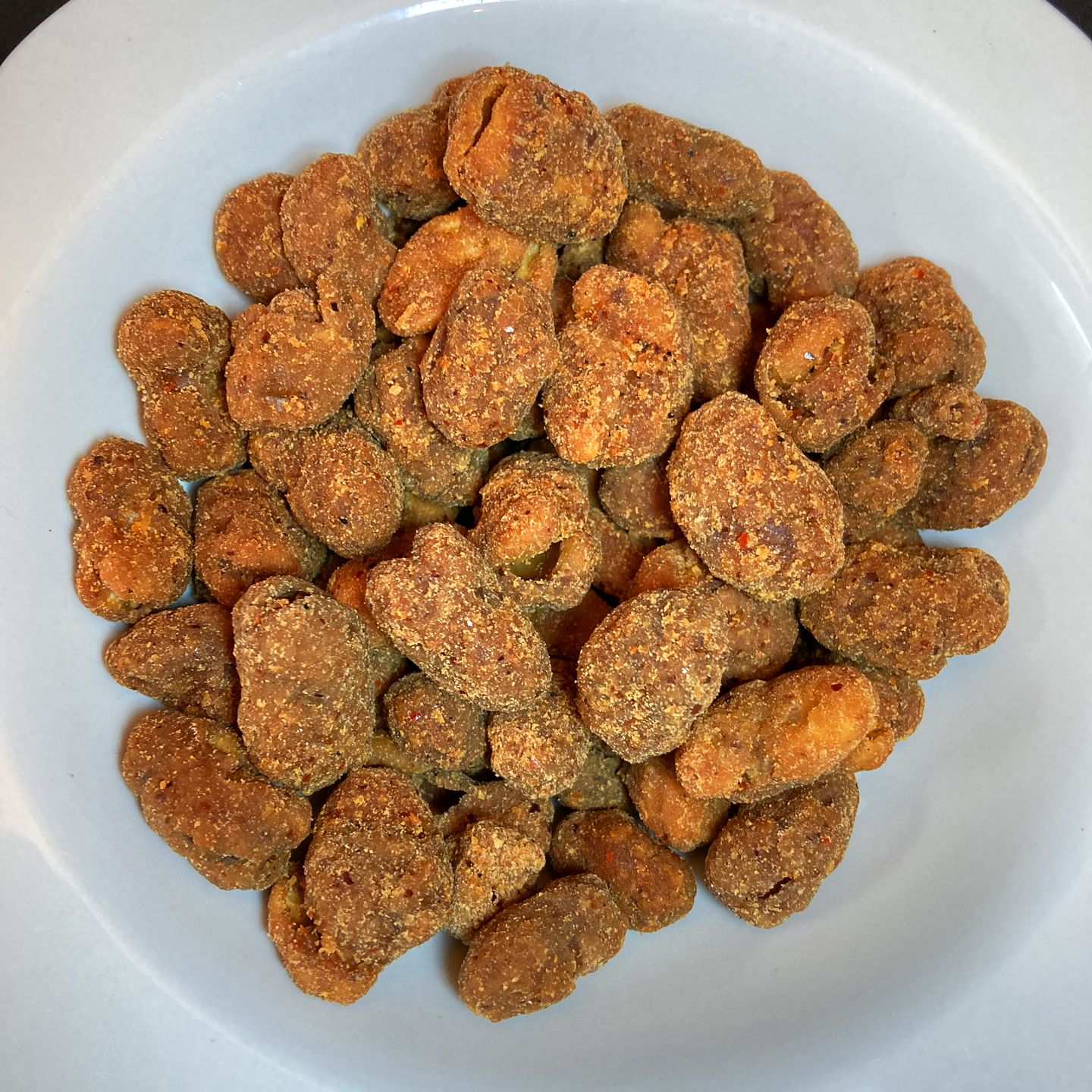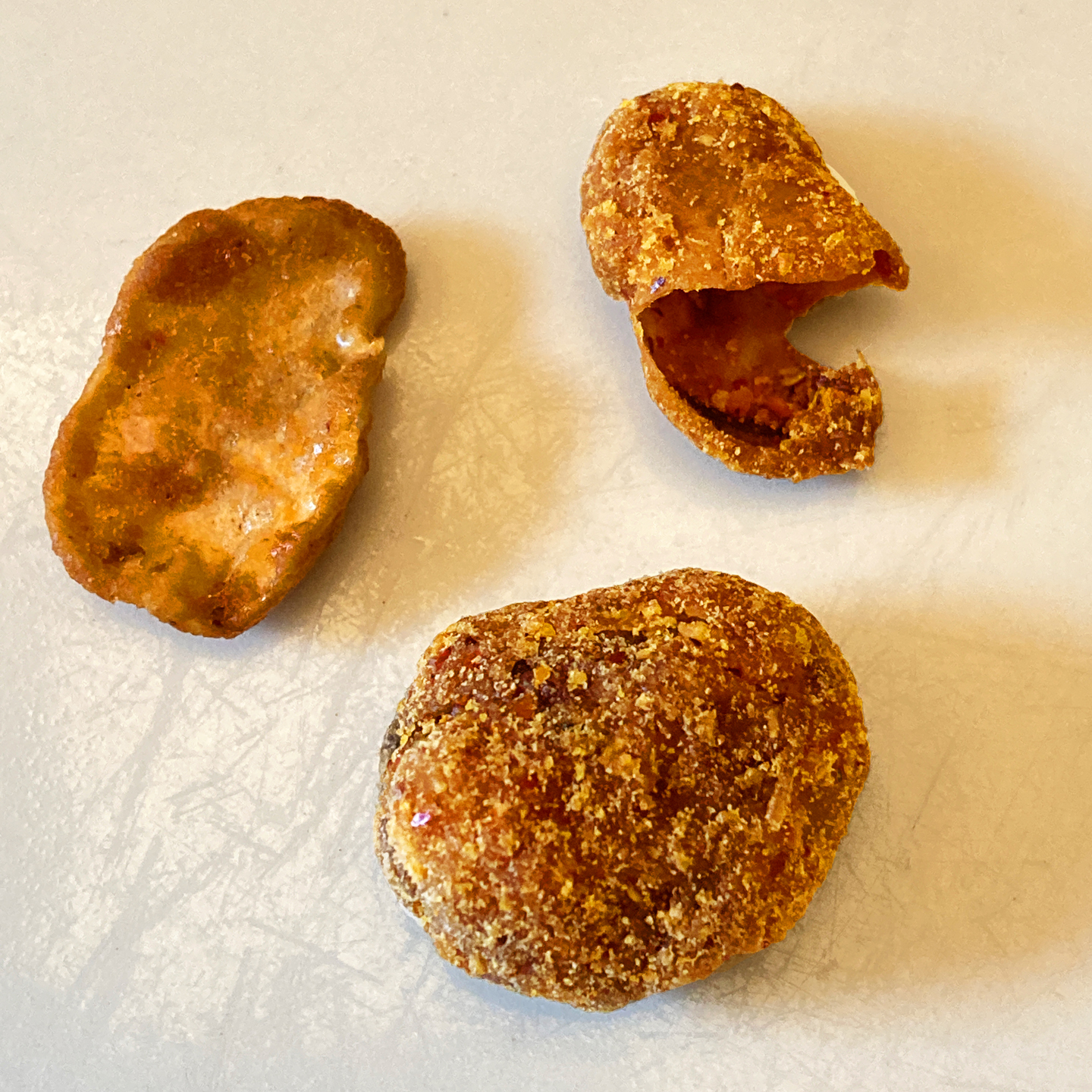(Click on any image to view it in high resolution.)

That’s what it read on the back of the package. Horsebean is simply another name for broad beans or fava beans, in this case dried for nibbling purposes. Now, if you decide to go ahead and do some independent research on the Google, be sure you search for the single word “horsebean”, not the phrase “horse bean” lest you tumble down a rabbit hole that, trust me, you truly do not want to explore. Don’t say I didn’t warn you.

I spotted these in a Chinese market snack aisle, my happy place of late, it would seem. They’re coated with a crunchy shell, at once spicy, salty, and sweet – the triumvirate of addictive noshing. Another caveat: I was surprised to discover a few of these that seemed almost as hard as pebbles, so chomp gingerly.
There was precious little English on the package except for the following on the back:
“Diehua brand strange-taste horsebeans are produced since 1897. The product has a special taste, fragrant and sweet and crisp, numb and sore, salty and fresh, comfortable and tasty and refreshing, it likes mulberry tree’s fruit color and lusterris Moise….”
[Luscious, maybe? They’re certainly not lustrous. Can’t figure out Moise. Starts out okay, kinda falls apart by the end….]
Followed by one final instruction: “Eating Method: eat right after open it.”

Mission accomplished. Yum.
But I need to make it abundantly clear for those of you who don’t know me that I am not mocking the language in the legend. Whoever wrote it has far more English than I will ever have of any Chinese dialect, and as such they also have my respect. I once had a friend who said that if she could be granted any wish, it would be to be able speak every language of the world fluently. I still admire her for that. It’s not about showing off, it’s about openhearted communication. That’s the first step in connecting with anyone.
And when all is said and done, that’s why writers write.
